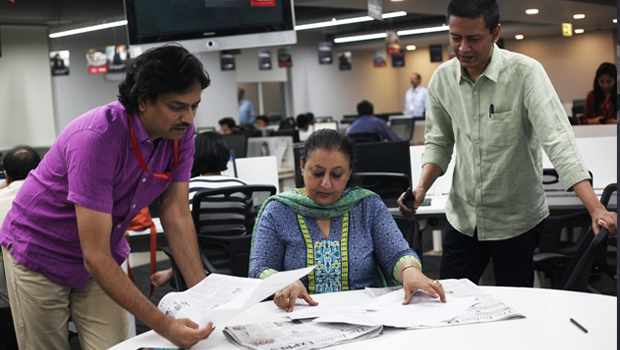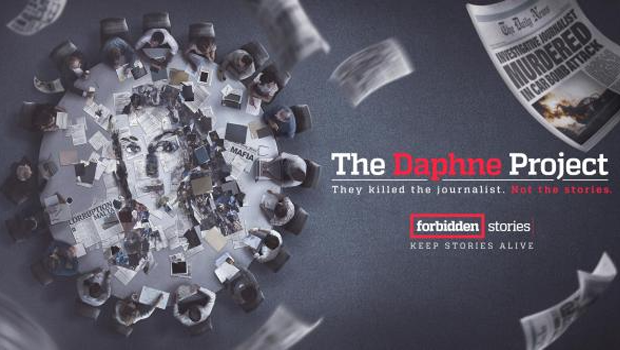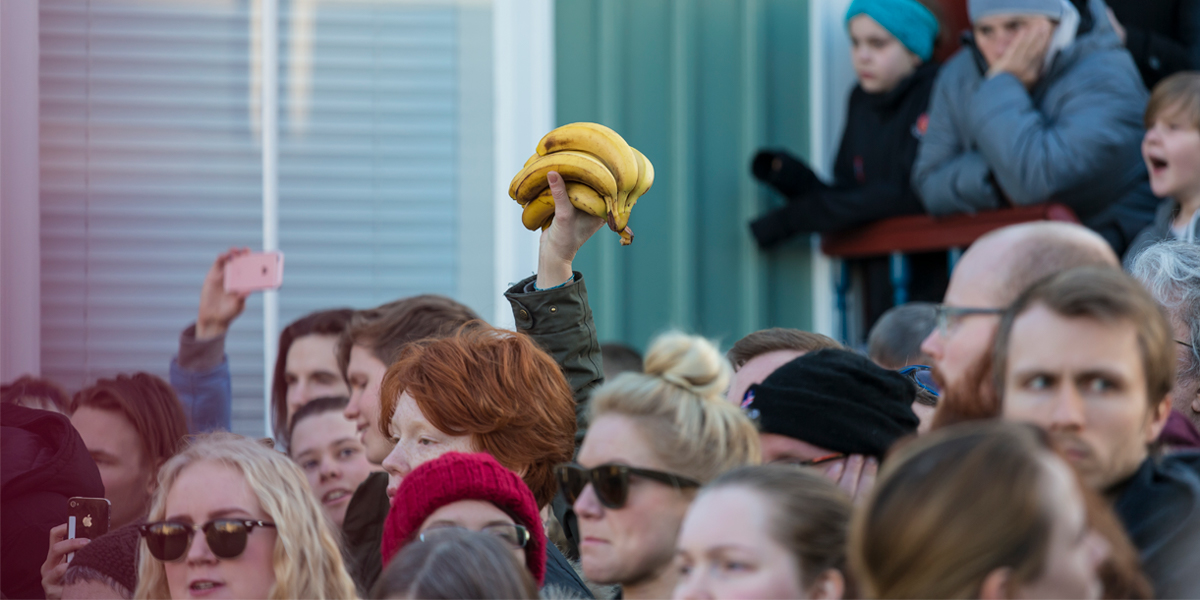ICIJ has hundreds of members across the world. Typically, these journalists are the best in the country and often have won many national and global awards. To highlight the work of these tireless journalists, we’re reinvigorating our old Secrets of the Masters with Meet the Investigators. This will be a monthly Q&A with one of our many members. First up, we have one of India’s finest journalists, Ritu Sarin, who is the investigations editor at The Indian Express in New Delhi.
What year did you join the International Consortium of Investigative Journalists (ICIJ)?
1999. That makes me among the earliest members. [Editor’s note: ICIJ was founded in 1997.]
What made you decide to become a journalist?
The choice of careers was between architecture and journalism. I got a good first break in a magazine post-graduation and am happy for it. There is no profession which gives you as wide an exposure to situations and subjects as journalism.
What does a regular day look like for you?
There is no typical day. Mornings are chaotic, also for reading a big bundle of newspapers and fixing appointments. Then usually I go to the office ‘till late evening, interspersed with office meetings, catching up with sources and other appointments. Last thing at night: playing a few games of scrabble on the ipad.
The team behind the #ParadisePapers investigation in association with @ICIJorg | Ten months of work! https://t.co/7FHZPTXd2D pic.twitter.com/ppT25AbxxW
— The Indian Express (@IndianExpress) November 5, 2017
What ICIJ projects have you worked for?
All the four offshore projects – Offshore Leaks, Swiss Leaks, Panama Papers and Paradise Papers.
Do you have a favorite? Why?
Certainly the Panama Papers. It was the first project where ICIJ provided multiple sharing platforms for media partners, and that was a huge learning experience. What was exciting were the details and depth in the Mossack Fonseca data … like a veritable treasure hunt for the who’s who across the world, and that is why the story impacted the way it did.
The global investigation redefined the parameters of collaborative journalism, and the search engine yielded great stories for individual journalists.
What’s the most valuable lesson or skill you’ve learned while working on an ICIJ project?
The challenge of working in a global newsroom and planning a package for days 1-2-3 knowing full well an identical dataset is available to scores of other journalists.
Working in a “global newsroom” presents its own challenge. How did you cope with it and can you share your secret for success?
While I had worked on two ICIJ offshore projects earlier, it was inclusion of all reporters in the ‘I-Hub’ [ICIJ’s communications platform] set up first for Panama Papers (a sort of democracy wall where leads and links for individual projects are shared) that actually gave the experience of working in a global online newsroom.
The media has a societal role of chronicling the changes, of recording apparent dangers.
The I-Hub has interesting inbuilt features, for example you can track who is online at any point and start a realtime chat with fellow collaborators. There are also discussions on the minutiae of the project — its name, final launch date, the eventual story lists, and so on. Various story specific or country specific groups are set up and yes, several important leads came my way thanks to the “India Group”. For instance, during Panama Papers we got a great lead for a story on commissions being paid for a defence contract from Ireland.
During Paradise Papers, the lead for a story on a medical scam came from a colleague in Japan. Also, instructions have to be reiterated to members of the team that all important leads have to be shared on the I-Hub. This is a huge shift for investigative reporters who are trained to keep secrets even from their families. Sharing is the key to all collaborations and kudos to the ICIJ staff as well for this. Not only were they available round-the-clock for clarifications, they flooded the I-Hub with data and information to be used by all.
What’s the most under-reported topic in your country or region that you think deserves more attention and scrutiny by the media?
Probably mental health. India is facing a mental illness epidemic, and there is an acute shortage of mental health professionals. But, socially, there is still a stigma attached to mental illness and thus, along with underreporting by the media, there is negligible reporting of mental illnesses by families themselves.
Since you started your career how has the media environment changed in your country?
It has metamorphosed. The shifts in technology and social media have changed the media landscape. In India, there has been an unprecedented explosion of investments in visual and online media, thus restricting the print into a smaller media space. I began journalism in the times of faxes and typewriters. Now, journalists are social media junkies; there is less and less of field reporting, and governments and the powers-that-be use this to their advantage to the hilt. Their aim is to keep the media, along with the people, polarized and divided.
What do you think journalism’s role in society should be? Is the media currently filling that role?
Besides the watchdog role, the media has a societal role of chronicling the changes, of recording apparent dangers. And in its rush for chasing breaking news and identifying fake news, unfortunately, this role is diminishing. The electronic media in India is more to blame for this, with the print media only fulfilling the role in parts.
You’ve recently won a prestigious award. What was it for and how did you feel when you first heard that you’ve been selected?
The International Press Institute India award is certainly a prestigious award, and the citation stated it was for a career in investigative journalism and for leading The Indian Express team that worked on the Panama Papers. In fact, I was in Mumbai with a large group of colleagues when I heard about it, and we cheered together.
Overall, what awards have you won as a journalist and what were they for?
I’ve previously won the coveted Ramnath Goenka and the Prem Bhatia awards for Excellence in Journalism. My team and I also were awarded the investigative prize for Panama Papers at the Ramnath Goenka awards for 2017. Since the story has brought individual recognition to journalists in several countries, I am delighted it has now been picked by award juries in India too.
How do you spend your free time, outside work?
With my many groups of friends, only few of whom are journalists. I have a passion for the wild, so most [out of town] trips are to wildlife sanctuaries with the family.
Best piece of advice you have ever been given?
[In tough times], if it helps, throw yourself at your work. If it doesn’t, it’s OK to do nothing.
If you could give young, aspiring journalists one tip, what would it be?
Be honest with your story and fair to your sources.



